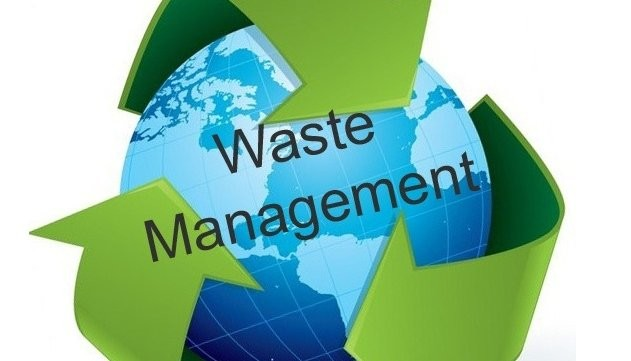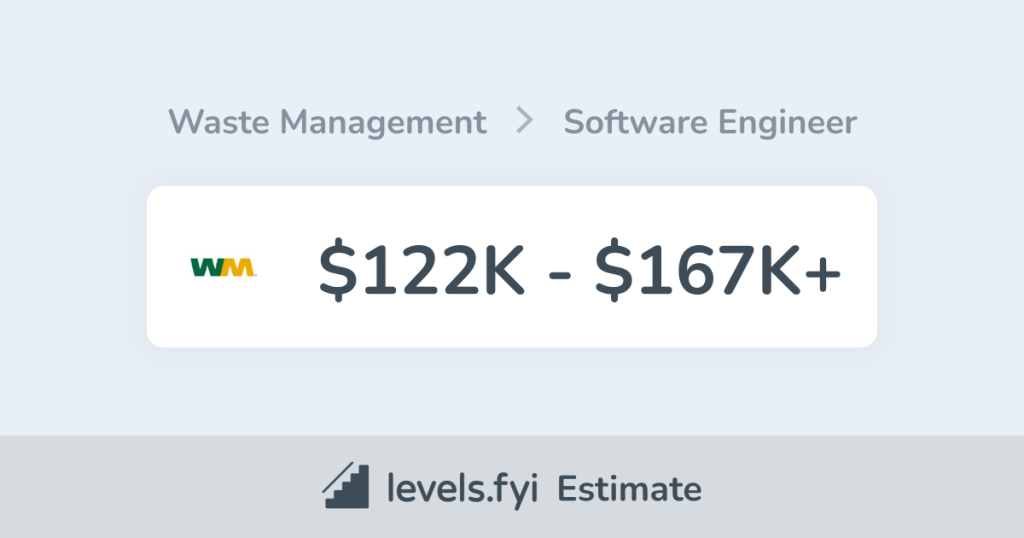
Waste Management is a prominent player in the waste management industry, focusing on collection, transportation, disposal, and recycling of various waste streams. Here’s a quick overview:
- Industry Leader: Waste Management is a major force in North America, offering comprehensive waste management solutions to residential, commercial, and industrial clients.
- Sustainability Focus: They prioritize environmentally responsible practices, investing in recycling initiatives and diverting waste from landfills.
- Technological Innovation: Waste Management embraces technology to optimize collection routes, improve efficiency, and enhance customer service.
What are the selection and Interview process of Waste Management?
The selection process at Waste Management can vary depending on the specific role and location. Here’s a general idea of what you might encounter:
1. Application: You’ll submit your resume and cover letter through their careers website.
2. Screening and Assessment: Recruiters will screen applications to assess your fit for the role based on the qualifications and experience outlined in the job description. Some positions may involve online assessments to evaluate skills or cultural fit.
3. Interview Stages: If shortlisted, prepare for a series of interviews, including:
- Phone Interview: An initial phone conversation with an HR representative or hiring manager to discuss your background, motivations, and interest in Waste Management.
- In-Person Interview(s): These may involve one or more rounds with hiring managers, team members from different departments (e.g., operations, safety), and potentially specialists depending on the role. Here, you might encounter:
- Behavioral Interview Questions: Showcase your relevant skills and experiences through past situations using the STAR method (Situation, Task, Action, Result).
- Situational Judgment Questions: Be prepared to answer questions that assess your decision-making skills in scenarios related to waste management operations, safety protocols, or customer service.
- Technical Assessments (For some roles): For positions like driver or technician roles, expect assessments to evaluate your knowledge of waste collection procedures, safety regulations, or basic mechanical aptitude.
4. Offer and Background Check: Successful candidates will receive a job offer contingent on a background check and potentially a drug test depending on the role.
Tips for Success:
- Research Waste Management thoroughly, understanding their services, sustainability efforts, and their commitment to technological advancements.
- Tailor your resume and cover letter to highlight relevant skills and experiences that demonstrate a strong fit for the specific role.
- Be prepared for physical demands associated with some roles (e.g., lifting, carrying).
- Practice your behavioral and situational judgment interview skills using the STAR method.
- Show your passion for sustainability, a commitment to safety protocols, and a willingness to contribute to an essential service industry.
By understanding Waste Management’s selection process and being well-prepared, you can increase your chances of landing a position with this leading waste management company and play a role in creating a more sustainable future.
How many rounds of interview conducted in Waste Management?
The exact number of interview rounds and salary for freshers at Waste Management can vary depending on the specific role and location. However, based on information gathered from job postings, employee reviews on websites like Glassdoor and Indeed, and a YouTube video about the interview process for a software engineer role [1, 2, 3], here’s what you can expect:
Number of Interview Rounds:
- Possible Range: One to three interview rounds after the initial application [1, 2, 3].
Here’s a possible breakdown of the interview stages:
- Initial Application: Submit your resume, cover letter, and you might encounter a web-based assessment about your skills or suitability for the role (often on a platform like Workday [3]).
- Phone Interview (possible): A recruiter might conduct a brief phone interview to discuss your experience and interest in Waste Management [2].
- Video Interview (possible for some roles): The initial screening might be a video interview instead of a phone interview [2].
- In-Person Interviews (one to two rounds): These could involve discussions with [2, 3]:
- Hiring Manager or Team Members: They will assess your qualifications, experience (if any), and fit for the specific role (e.g., communication skills for customer service positions, technical skills for engineering roles).
- Specialists (possible for some roles): For operations or technical roles, you might meet with specialists to assess your skills or knowledge relevant to the role (e.g., knowledge of waste collection procedures or specific software used in the department).
What is the salary for freshers in Waste Management?

Publicly available information on exact salaries for freshers at Waste Management isn’t advertised on their careers website [4]. Here are ways to get a better idea of the range for entry-level positions:
- Salary Websites: Explore salary websites like Glassdoor or Indeed. Search for “Waste Management” and filter by “entry-level” or “freshers” positions in your target location to get a sense of the range for similar roles (e.g., customer service representative, dispatcher, data analyst).
- Salary Negotiation: Be prepared to discuss salary during the offer stage, especially if you have relevant experience or a strong educational background in a field like environmental science or business. Research salary ranges beforehand and highlight your skills and willingness to learn to justify your desired compensation.
Tips for Landing a Job at Waste Management:
- Research Waste Management: Learn about their areas of focus in waste collection, recycling, and sustainability initiatives. Understand their company culture and values. This demonstrates your genuine interest during the interview [4].
- Highlight Relevant Skills and Experience: Tailor your resume to showcase skills and experiences relevant to the specific role you’re applying for. This could include communication skills, teamwork abilities, problem-solving skills, and a passion for sustainability (if applicable).
- Prepare for Behavioral and Situational Questions: Be prepared to answer questions using the STAR method (Situation, Task, Action, Result) to showcase your problem-solving skills and ability to work in a team environment. You might also encounter questions about your understanding of the waste management industry.
By following these steps, you’ll gain a better understanding of the interview process and potential salary range for freshers at Waste Management. Remember, your specific skills, experience, and performance during the interview rounds can also influence your starting salary.
Top questions Asked for freshers in Waste Management
The waste management industry offers exciting opportunities for recent graduates (freshers) in various departments like collection, recycling, sustainability, and engineering. Here are some general questions you might encounter during an interview, along with some specific examples depending on the role:
General Skills and Waste Management Industry Knowledge (Basic Understanding is Okay):
- Tell me about yourself and your interest in Waste Management. (Highlight relevant skills like communication, teamwork, problem-solving, analytical thinking (if applicable to the role), and an interest in environmental science, sustainability, or the waste management industry. Mention what interests you about Waste Management’s focus on environmental responsibility, their commitment to recycling and diversion, or a specific area like waste-to-energy technology (if applicable)).
- Describe a situation where you demonstrated excellent problem-solving skills. (Focus on how you approached a complex problem and reached a solution).
- Explain a time you had to work effectively in a team on a project. (Showcase your teamwork abilities and communication skills).
- What are your strengths and weaknesses? (Be honest but highlight strengths relevant to the waste management industry or your desired role, like attention to detail, strong work ethic, a willingness to learn quickly, and an understanding of environmental regulations (if applicable)).
- Why do you want to work at Waste Management? (Express your interest in learning about the waste management industry’s role in sustainability, a desire to gain experience in a leading company with a focus on environmental solutions, or an interest in Waste Management’s commitment to innovation and diverting waste from landfills. You can also mention their safety culture or their community involvement).
- Do you have any questions for us? (Always have thoughtful questions prepared about the role, company culture, or green initiatives for freshers at Waste Management).
Additional Questions (May Vary by Role):
- (For Collection/Operations Roles): How would you approach ensuring safety and efficiency on a waste collection route (if applicable to your coursework).
- (For Recycling/Sustainability Roles): Describe a situation where you championed an environmentally friendly solution (if applicable to your experience).
- (For Engineering Roles): Describe a project where you applied your engineering skills (relevant to the type of engineering, e.g., environmental, mechanical). Be prepared to discuss basic knowledge of environmental regulations or waste processing technologies (specific knowledge may not be expected for freshers, but enthusiasm to learn is key).
Tips:
- Show your enthusiasm and willingness to learn, even if your waste management industry knowledge is basic. Waste Management emphasizes sustainability, innovation, and a strong work ethic.
- Highlight your ability to work independently and as part of a team in a potentially physical and fast-paced environment.
- Demonstrate a problem-solving mindset and an interest in learning about the waste management industry’s role in creating a more sustainable future.
How to apply for job in Waste Management?

Here’s a guide on applying for a job at Waste Management:
- Visit the Waste Management Careers Website: Head over to Waste Management Careers page .
- Search for Jobs: Utilize keywords related to your field or browse job categories (e.g., Collection, Recycling, Sustainability, Engineering). Look for “Entry Level” or “Associate” positions that align with your skills and interests. Consider which areas of Waste Management’s work (e.g., waste collection, sorting and processing recyclables, developing sustainable solutions, or designing innovative technologies) you might be interested in.
- Find the Perfect Fit: Carefully read job descriptions and identify roles that align with your qualifications and aspirations within the waste management industry. Consider your strengths and what kind of work environment you prefer (outdoor operations, working in a recycling facility, data analysis for sustainability initiatives, or engineering design).
- Apply Online: Submit your application electronically for the chosen position. Tailor your resume and cover letter to the specific role, highlighting relevant coursework, any prior experience (if applicable), and your eagerness to learn and contribute to Waste Management’s mission of minimizing environmental impact.
- Prepare for Interview: If shortlisted, research Waste Management further, including their leadership in sustainable waste management solutions, their commitment to safety, and their community outreach programs. Practice answering common interview questions and prepare thoughtful questions for the interviewer about the role, company culture, and development programs for freshers at Waste Management. Demonstrate your professionalism, strong work ethic, and potential to excel in a dynamic and environmentally conscious industry.
By showcasing your relevant skills, interest in sustainability and waste management, and willingness to learn, you can increase your chances of landing a job at Waste Management.
Say goodbye to the hassles of bike ownership! MotoShare.in offers affordable rentals, whether you need a scooter for errands, a bike for a road trip, or a reliable ride to explore new cities.

 Starting: 1st of Every Month
Starting: 1st of Every Month  +91 8409492687
+91 8409492687  Contact@DevOpsSchool.com
Contact@DevOpsSchool.com
